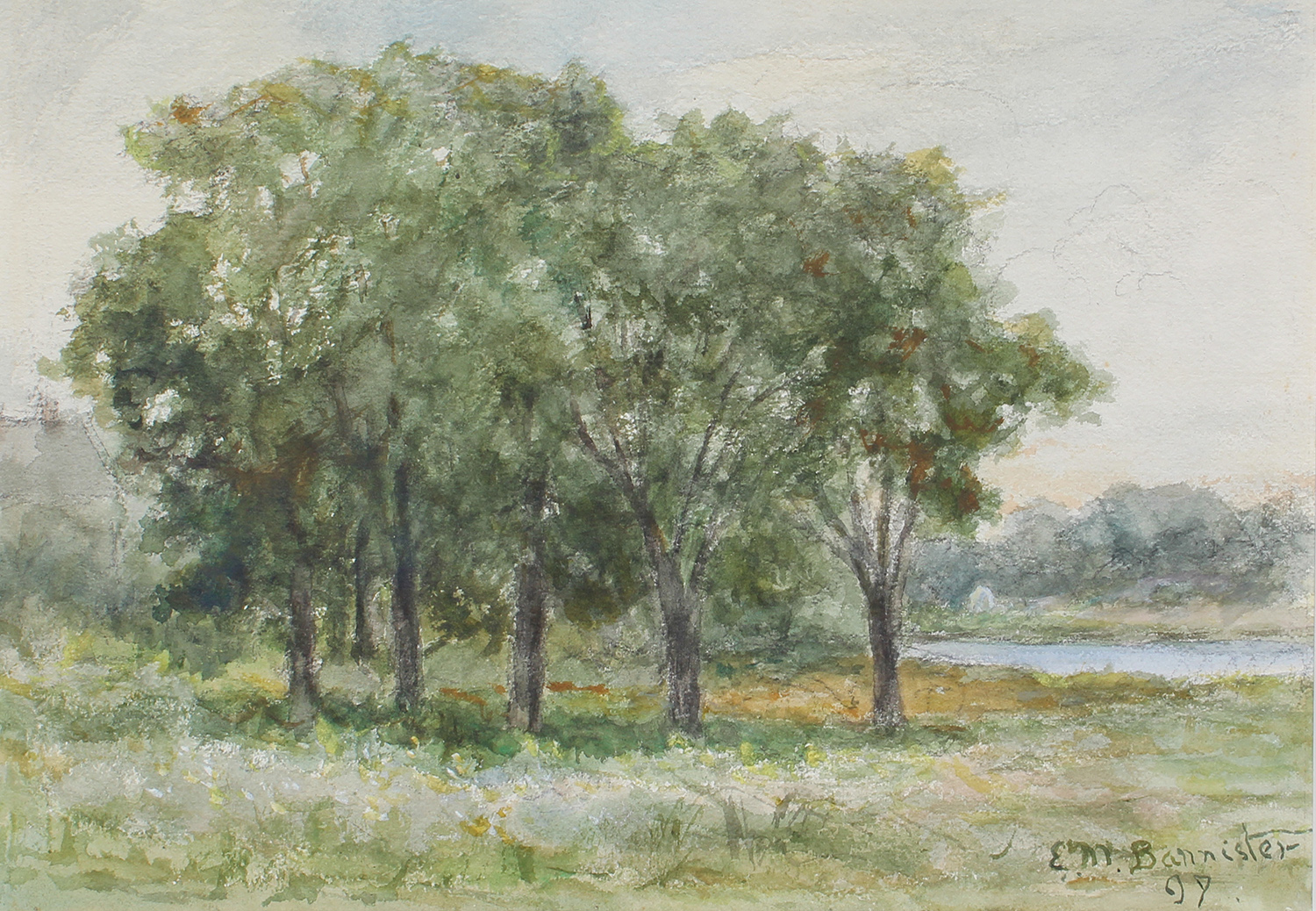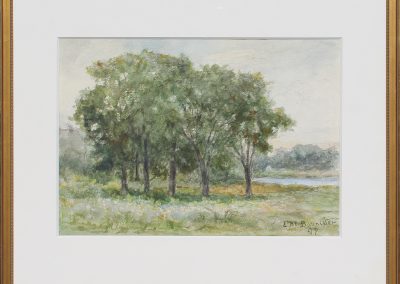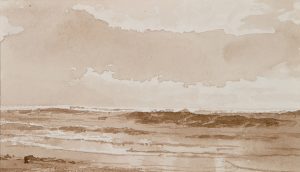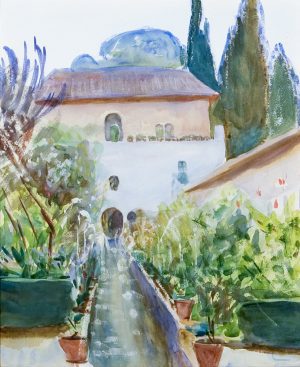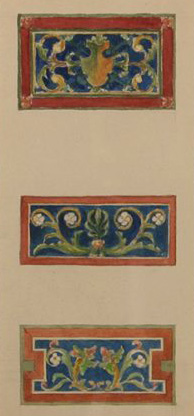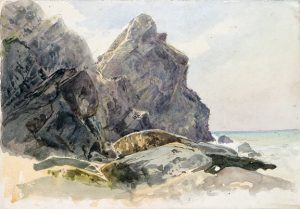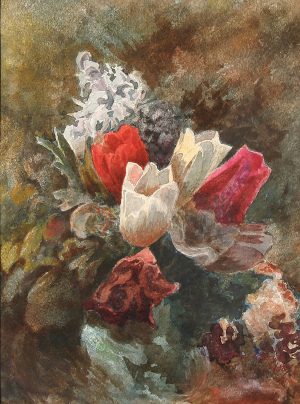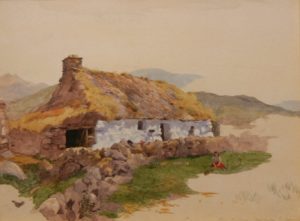Edward Mitchell Bannister (1833-1901)
Edward Mitchell Bannister, the first African-American artist to gain national recognition, was born in St. Andrews, New Brunswick around 1828. His early interest in drawing and watercolor painting was encouraged by his mother, who raised Edward and his brother William on her own following her husband’s death in 1832. When their mother died in 1844, the brothers were sent to live and work on the estate of wealthy lawyer and businessman, Harris Hatch. Bannister worked for a time on Northeast trading ships, before moving to Boston in 1848 with his brother. There they worked as hairdressers in the African-American community, which at that time was still segregated from the neighborhoods and business districts of the whites. Bannister’s desire to become an artist was thwarted by his inability to find an artist or an art school that would accept him as a student. He was forced to gain what education he could by visiting those museums that admitted blacks. By 1853 Bannister was working in one of the hair salons owned by successful black businesswoman, Christiana Carteaux. By the mid-1850s Bannister had achieved a local reputation for his portraits in crayon. In 1854 the artist received his first commission for an oil painting, The Ship Outward Bound, which became the first of many marine subjects Bannister would paint. Edward and Christiana were married in 1857, and by 1858 Bannister was working full-time as an artist. In the mid-1860s Bannister spent time in New York studying photography, and attended the evening drawing classes of Dr. William Rimmer, physician and sculptor, in Boston. Bannister is primarily known as a landscape painter, but he executed portraits as well, most of which have been lost. In 1869 Bannister and his wife moved to Providence, Rhode Island, where the artist established a studio. Bannister was the first African-American artist to win a national award, a first prize medal at the 1876 Philadelphia Centennial Exposition. Bannister recounted the story of how he was initially refused entrance to receive his prize because of his race.
Landscape 1898
by Edward Mitchell Bannister (1833-1901)
| Medium | Watercolor |
| Medium Detail | Watercolor and pencil on paper |
| Dimensions | 12 1/2 x 17 3/4 inches; Framed: 23 x 27 inches |
| Signed Location | Signed and dated, lower right |
| Date Created | 1898 |
| Provenance | Rhode Island Governor Dennis J. Roberts (1903-1994), possibly from the Bannister family; Descended in the Roberts family |
Printable version
View additional works by Edward Mitchell Bannister
This artwork is no longer in our inventory
Contact Us About This Piece

